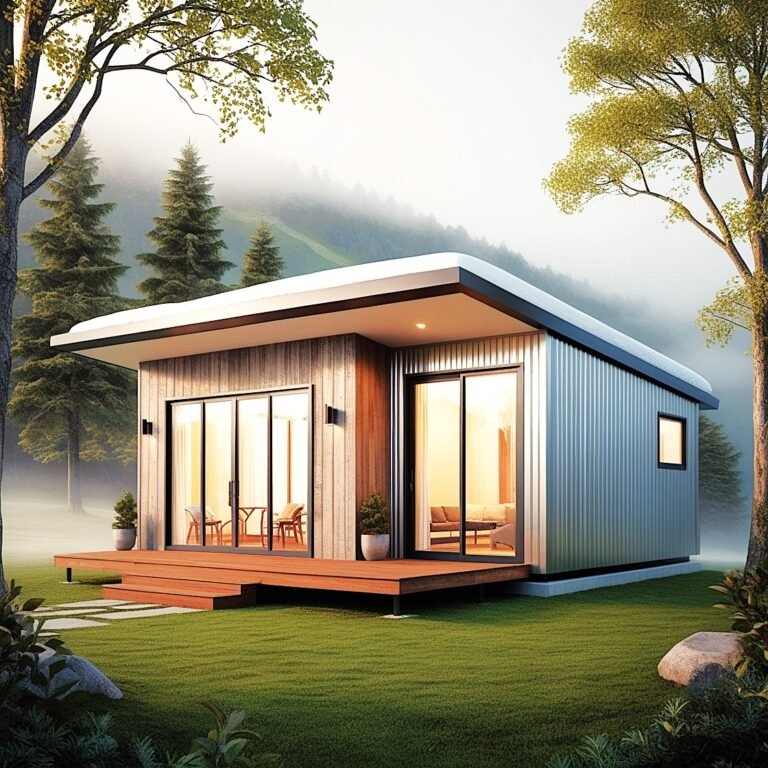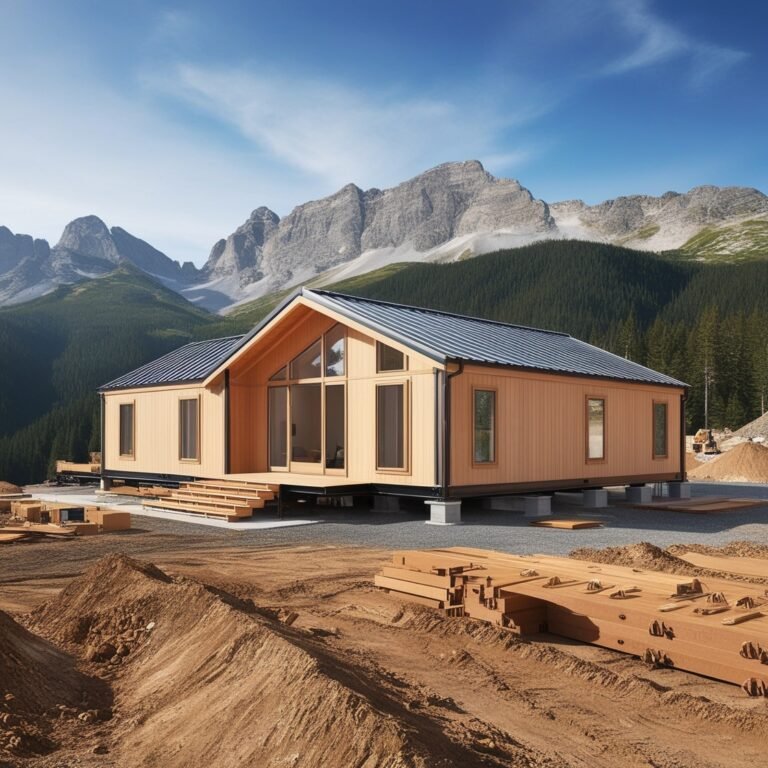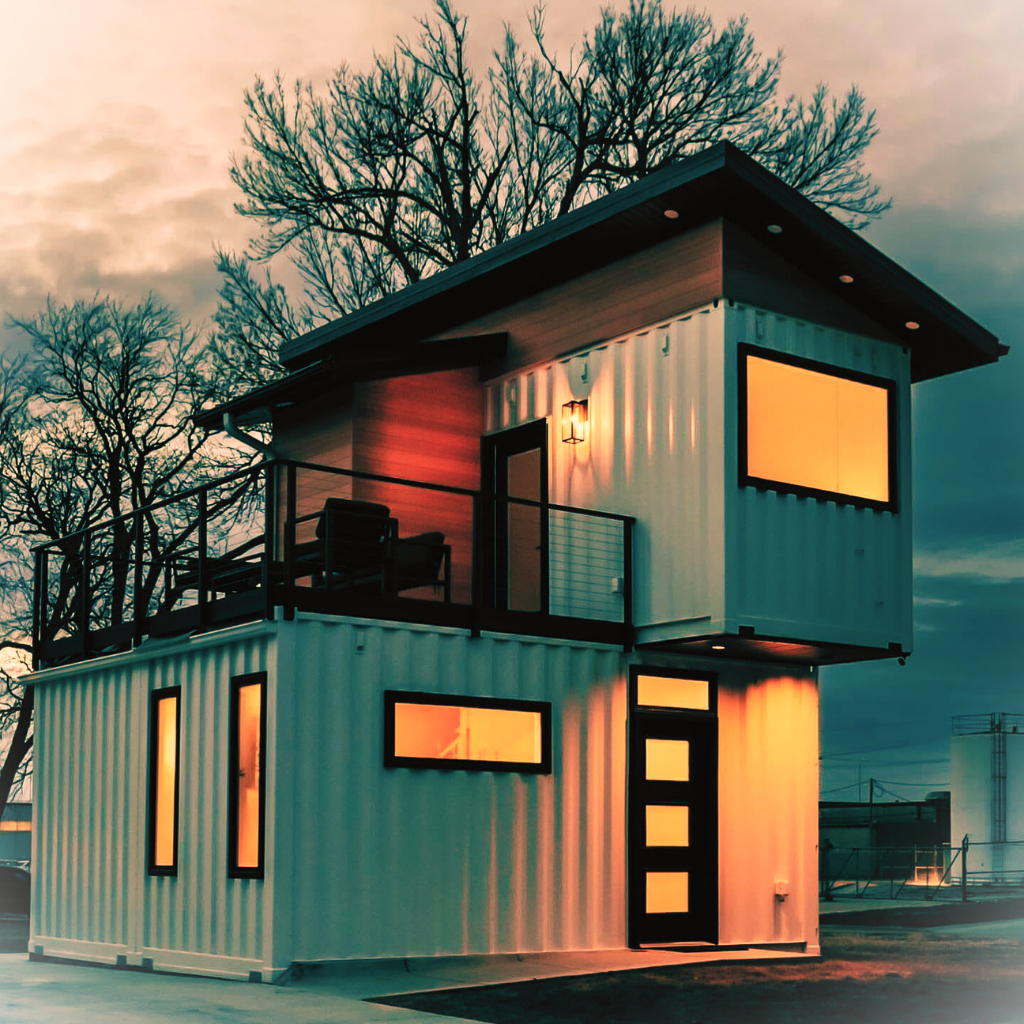Many people think about building a house in the mountain landscape at some point of their life, but one recent challenge that stands out is the construction of prefabricated mountain homes. It doesn’t matter if you want to have a small cozy wooden house deep in the forest or a stylish modern prefabricated house on cliffs; there is always an inspiring aspect of prefabricated houses, which comprise easiness, eco-friendliness, and economical value compared to the traditional homes.
But what is it that makes these homes preferable over the other types for services provided up in the mountains? And what about the hazards that are always present where construction is done in the wild, far from civilization? In this piece, we will try to understand how come the advent of prefabricated mountain dwellings has become a common phenomenon for adventurers’ population and those simply in search for solitude and calmness.
Table of Contents
What are prefabricated mountain homes?
Before knowing about prefabricated mountain homes, we should know about prefabricated homes. Prefabricated homes are those that have the sections constructed in the factory and then transported to the site where the house needs to be actually built. The main distinction between these types of homes and the conventional building process is that the steps are made in an enclosed space, mostly in huge factories, and then transported on-site for the structure to be completed. This is in contrast with conventional building procedures, which construct the entire structure in a desired location without any component being prefabricated elsewhere.Prefab houses can be of a variety of modular houses, and these include assembled houses, wall panel systems, and ready-to-assemble homes. Above all, these can be designed to meet the objectives of geographic and far-spanning region occupants.
The specific definition of the prefabricated mountain homes is that which were fabricated previously, in a large factory or elsewhere, and specialized for constructing homes over mountains or hills.
Prefab houses can be of a variety of modular houses, and these include assembled houses, wall panel systems, and ready-to-assemble homes. Above all, these can be designed to meet the objectives of geographic and far-spanning region occupants.
The specific definition of the prefabricated mountain homes is that which were fabricated previously, in a large factory or elsewhere, and specialised for constructing homes over mountains or hills.
The Benefits of Building Prefabricated Mountain Homes
The prospect of residing in the mountains is indeed fascinating; however, there are some issues that one should expect living there. Mountain home construction comes with special considerations due to the harsh climates, steep slopes and remote locations. This is why for people intending to build in such areas, prefabricated houses are on the top of the list of their choices. Here are some top benefits of prefabricated mountain homes:
Quick in Management
The construction of prefabricated structures is one of the most encouraging factors about them. Construction of conventional houses can take the time span of over four months to complete the whole structure and even years. Where the prefabricated mountain homes can be up and ready for occupation within weeks. For mountain homes, where they may experience issues such as weak or no construction work because of summer rains, but when the prefabricated house elements come being ready and it’s just the matter of assembling, then this can be quite an advantage.
Reduced Costs
It is an obvious fact that building a house in the high heavens can be expensive. With all the land uprooting, special skilled workers, and materials being brought in very far off the sea level, the cost of building a conventional mountain home tends to go into the red alert. But in contrast, building prefabricated houses is more economical than conventional construction up there. It requires less time and material wasted due to the fact that these homes are built in the factory already and brought to the site for just assembling. Moreover, most of the prefabricated houses use less material and fewer man-hours, which saves costs.
The Principle of Sustainability and Environmental Protection
Natural environments are typically unpredictable and fragile. Accordingly, building construction in these areas is totally eco-centric. Nowadays, a lot of prefabricated houses are manufactured with the aim of sustainability by making use of energy-saving materials and sophisticated modern building technologies. So, some prefabricated houses bear an energy star rating or LEED certification, and even more of such green certifications make sure that the newly built house has almost no impact on the environment.
In addition to that, apart from the energy efficiency concerns, even the construction of the prefab homes takes place in a controlled factory environment, which in turn reduces material waste and affects the less to the ecological prints during the entire building process. This will be a positive factor for a nature-cycled individual or green home seekers.
Resistance to Weather and Longevity
There is a high probability that the residence located in a high-altitude region experiences conditions like snowfall, wind, and changes in temperature. To build prefabricated mountain homes, such factors are generally taken into account when being designed. Since most of the components are made within a controlled environment and subjected to strict quality control processes, they tend to outlast longer compared to the standard wood-constructed houses.
In addition, many prefabricated homes are reinforced with inclusive features such as thick insulated panels and enhanced frames, which help these homes to withstand harsh weather found in the mountains.
Flexibility
Contrary to popular belief that prefabricated homes are simply put together after designing them, it is not a ”one for all” idea.But for prefabricated mountain homes, many companies provide a diverse selection of floor plans, unique finishes, and styles for the customers to choose from. Even the simplest plans, like a one-room camping cabin, are designed very carefully and optimized for the usability of the small space.
Some of them also include the option of adding more specific things, such as a wraparound terrace, big picture windows oriented toward the mountains, or a green roof blending with nature.
Appeal Of Prefabricated Mountain Homes
1. Less Disturbance On The Site
In the traditional construction method, it is necessary to clear a certain space and excavate the earth in order for the site to be ready for building, which frequently causes damage to the mountain environment. Prefabricated mountain homes are manufactured away from the site and transported for assembling on the already prepared site, reducing the need for too much site works. This reduces the adverse effects on the mountain environment and the better use of mountain resources.
2. Improved Energy Management
Most modular mountain homes are built with an energy-efficient approach. Warm walls in winter and cool roofs in summer can be achieved by the use of insulation, high-efficiency windows, and well-sealed construction. This leads to lower energy costs, but more importantly, provides comfort to the occupants of the house in all the seasons.
3. Enhanced Respect for Nature
Prefabricated mountain homes are mostly designed to blend with the surrounding landscape. And always kept in mind about the environmental impacts. It is preferred to design the home to fit well with the environment; for example, wall finishes made of wood or fitted with large glasses for views or even green roofs.
These are some of the numerous advantages of prefabricated homes that cut across an assortment of tastes that can be adapted to various settings.
By hiring a competent prefabricated mountain homes builder, occupants will be able to design a home that not only blends them into it but also looks like it belongs to the mountain landscape.
Problems Associated with the Use of Prefabricated Mountain Homes
Of course, living in a mountain-side home that quite a number prefer to be a prefab one also comes with its own share of challenges. To begin with, here are some of the cons to take into account:
Accessibility Problems
One of the logistical concerns, which is a challenge when building a prefabricated mountain home on a hill within a spacious, vast area, is bringing fabricated materials to the designated place. This is especially true concerning the distance between the building site and the manufacturing plant. Where the supplied components have to be brought or transported over a long distance through narrow winding rocky terrain, mountain roads, oftentimes rugged and inhospitable. Weather conditions might also restrict movement and so delivery may hampered and delayed.
Site Preparation
Even though each sequential element is typically put together at a time, the construction even can’t begin on sloped land unless and until the land has been graded to some desirable level. It is an obvious requirement to explore and consult a specialist who knows about the building of mountain homes and can help with site improvements and development.
Our Top Picked Prefabricated Modular House, which can be placed easily on your mountain site
Pros:
- The layout is open and specious, As it is a small space, so its design doesn’t made it congested.
- Sufficient number of windows to allow natural light which will keep the house playful and healthy.
- Have the flexibility to select from a range of layout options and finishes, allowing them to customize their tiny home to perfectly match their lifestyle and tastes.
- As it is a modular design. So it allows a quick and hassle free installation and setup to your site.
Cons:
- The exterior material is completely metal. So in cold weather there might be a performance lack in terms of making the interior environment warm. Though there is insulation between interior and exterior surfaces, you need to double check with the seller before buying.
- Suitable for a 2 to 3-person family. Inconvenient for a comparatively large family.
Conclusively, Thinking The Future of Living Prefabricated Mountain Homes
Despite these problems, the percentage of the benefits is high. This is the most versatile and challenging architectural sphere that involves contemporary values and new technologies. It can be both a seasonal house for a time or a mountain hut for rent somewhere in a remote area. All of these can be called modern architectural solutions for mountain dwelling developments and the structures used in them.
Prefabricated mountain homes are energy-efficient and affordable even during harsh climatic situations like the winter, when volcano eruptions and earthquakes are experienced. For all these reasons and also the creative imagination of the architects, prefabricated mountain homes are in fast demand for design and construction in the current days due to cutthroat market competition.
Wherever you are, whether it is a holiday house that you are after or something more permanent, even if a space for rent, a prefabricated mountain dwelling is preppy with nature along with contemporary forms of construction.




